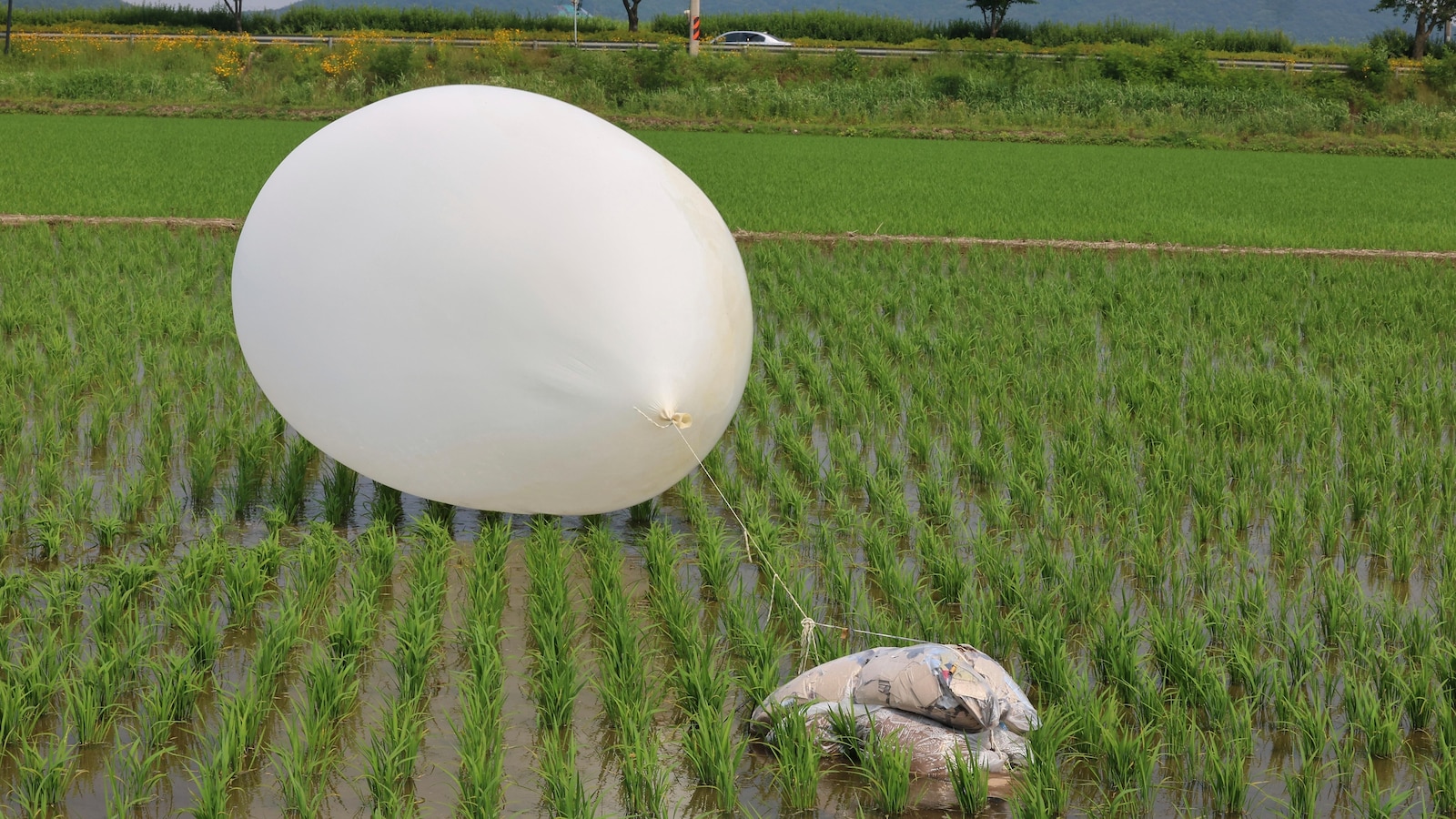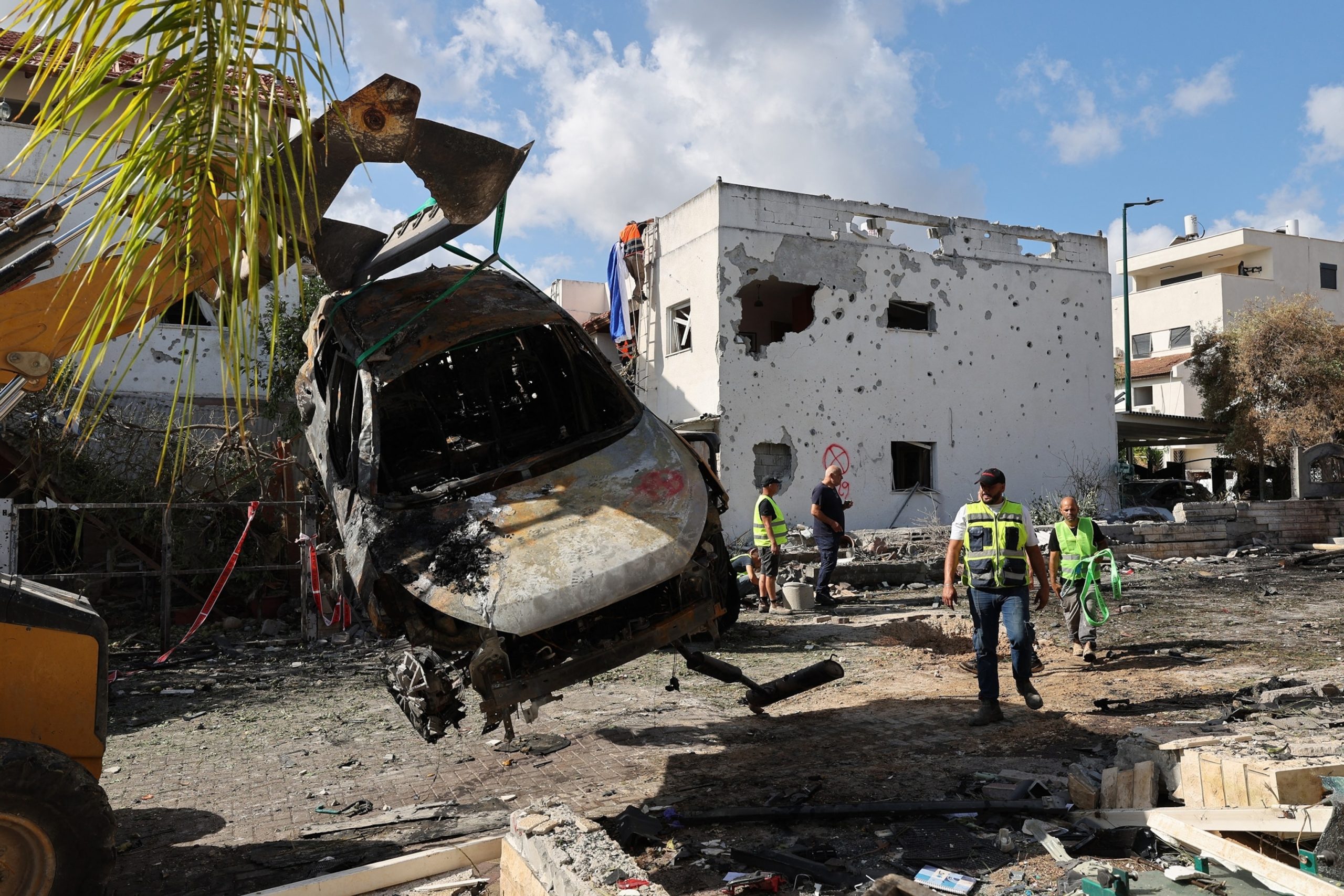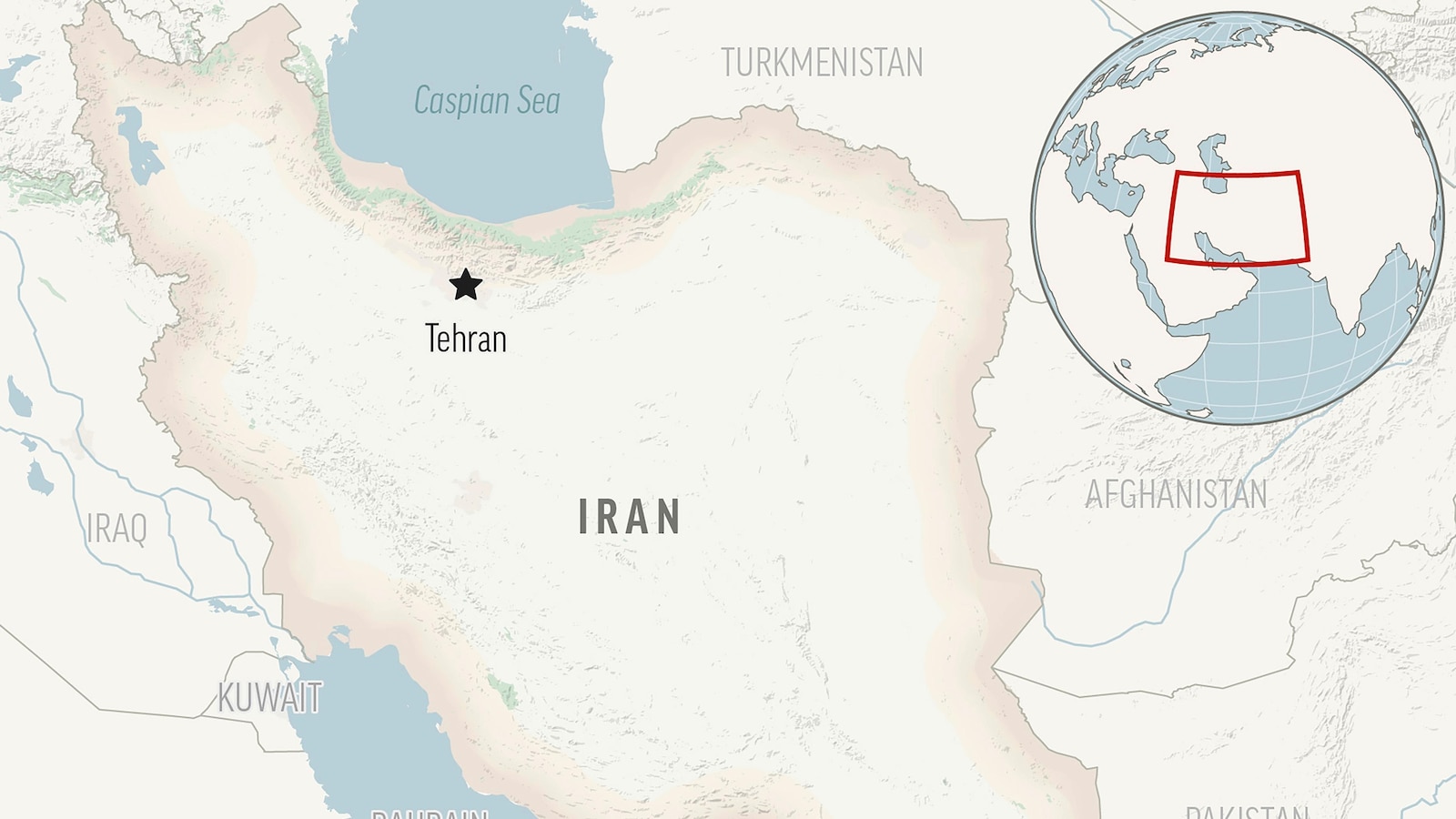
SEOUL, South Korea — North Korea launched more balloons likely carrying rubbish toward South Korea on Sunday, two days after the South restarted blaring anti-Pyongyang propaganda broadcasts across the border in retaliation for the North’s repeated balloon campaigns, Seoul officials said.
South Korea’s Joint Chiefs of Staff said the North Korean balloons were flying north of Seoul, the South Korean capital, after crossing the border.
It said the South Korean public should be alert for falling objects and report to police and military authorities if they see any balloons fallen on the ground.
North Korea’s latest balloon flying is threatening to escalate tensions on the Korean Peninsula. South Korea earlier warned it would conduct loudspeaker broadcasts in a fuller manner and take other stronger steps if North Korea continues provocations like balloon launches.
Since late May, North Korea has floated numerous balloons on a series of launch events to drop scraps of cloth, cigarette butts, waste batteries and even manure on South Korea, though they caused no major damage in South Korea.
North Korea said the initial balloons were launched in response to South Korean activists sending political leaflets to the North via their own balloons. North Korea views South Korean civilian leafleting activities as a major threat to its leadership as the country prohibits official access to foreign news for most of its 26 million people, experts say.
In a statement Tuesday, Kim Yo Jong, the powerful sister of North Korean leader Kim Jong Un, warned that South Korean “scum” must be ready to pay “a gruesome and dear price” over the leafleating activities. She said more South Korean leaflets had been found in North Korea. That raised concerns North Korea could stage physical provocations, rather than balloon launches.
In response to North Korea’s balloon campaigns, South Korea responded by suspending a 2018 tension-reduction deal with North Korea, a step required for it to restart propaganda broadcasts and conduct front-line live-fire military drills at border areas. On June 9, South Korea made propaganda broadcasts for two hours at the border.
In recent weeks, tensions on the Korean Peninsula have once again escalated as North Korea has increased the frequency of its trash balloon launches in response to South Korea’s resumption of propaganda broadcasts along the border. These trash balloon launches, in which North Korea sends balloons filled with leaflets, USB drives, and other materials across the border, have long been a source of contention between the two countries.
The resumption of propaganda broadcasts by South Korea came after North Korea conducted a series of missile tests and other provocative actions. In response, South Korea announced that it would resume broadcasting anti-North Korean messages and music along the border, a practice that had been suspended in 2018 as part of efforts to improve relations between the two countries.
In retaliation, North Korea has stepped up its trash balloon launches, sending dozens of balloons filled with anti-South Korean propaganda and other materials across the border. These launches have been met with condemnation from South Korea, which has called them a violation of the agreement reached between the two countries in 2018 to reduce tensions along the border.
The trash balloon launches are just the latest in a series of provocations by North Korea in recent months. In addition to the missile tests, North Korea has also threatened to resume nuclear and long-range missile tests, and has accused South Korea of failing to uphold its end of the 2018 agreement.
The increased frequency of trash balloon launches is a worrying development, as it could further escalate tensions on the Korean Peninsula and undermine efforts to improve relations between the two countries. It also raises concerns about the potential for miscalculation or misunderstanding that could lead to a dangerous escalation of hostilities.
As tensions continue to rise, it is more important than ever for both North and South Korea to engage in dialogue and diplomacy to address their differences and work towards a peaceful resolution. The international community must also remain vigilant and ready to support efforts to de-escalate the situation and prevent any further provocations that could lead to conflict.


